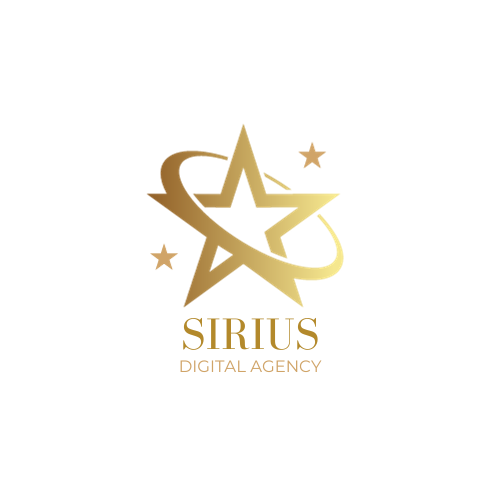Career development programs are essential for enhancing employee skills and overall job satisfaction. These programs can include personalized learning paths that align with both individual and organizational goals, structured mentorship initiatives, and focused skill development workshops. Regular feedback mechanisms and clear growth paths likewise play a significant role in tracking progress and outlining career advancement. Comprehending these elements can help you identify the most effective strategies for nurturing workplace growth and retention. But what specific programs should you consider implementing?
Key Takeaways

- Personalized Learning Paths: Tailor development programs to meet individual employee needs and align with organizational goals for effective skill enhancement.
- Structured Mentorship Initiatives: Pair employees with experienced mentors to provide guidance, boost confidence, and facilitate networking opportunities within the industry.
- Skill Development Workshops: Offer hands-on training sessions focusing on both technical and soft skills to engage employees and improve job satisfaction.
- Regular Feedback and Assessments: Implement consistent evaluations to track progress, identify areas for improvement, and adjust development strategies as needed.
- Clear Growth Paths: Establish defined milestones for career advancement, helping employees understand potential career trajectories and skill requirements.
Importance of Career Development Programs

Career development programs are vital for any organization that aims to improve its workforce’s skills and competencies, as they align employee growth with the company’s objectives.
Investing in these programs can lead to a more competent and productive workforce, as employees who see clear paths for growth report higher job satisfaction.
Furthermore, organizations that prioritize career development opportunities for employees often experience up to 34% higher retention rates, greatly cutting turnover costs.
In addition, structured initiatives can boost productivity by an average of 15%, enabling employees to better contribute to business goals.
Finally, by focusing on career development, companies can cultivate future leaders, with 80% recognizing leadership development as fundamental for effective succession planning.
Key Elements of Effective Programs

To create an effective career development program, organizations must focus on several key elements that align with both employee aspirations and company goals.
First, personalized learning paths guarantee that career development programs for employees cater to individual needs during supporting organizational objectives.
Next, clear growth paths should outline transparent milestones for career advancement, helping employees understand their potential for progression.
Regular feedback and assessments are crucial, allowing employees to track their progress and adjust their development plans as needed.
Furthermore, investing in skill development initiatives, such as training sessions and workshops, equips employees with relevant knowledge.
Finally, structured mentorship opportunities improve skill acquisition and cultivate professional networks, eventually leading to increased job satisfaction and improved performance within the workplace.
Mentorship and Coaching Initiatives

Mentorship and coaching initiatives serve as critical components in employee career development, as they connect individuals with seasoned professionals who can guide them through their career paths. These programs improve your confidence and goal-setting abilities, leading to increased job satisfaction and retention rates. Studies show that mentored individuals are five times more likely to receive promotions than those without mentors. By creating customized development plans, mentorship helps identify your strengths and areas for improvement. Regular check-ins and feedback facilitate ongoing development, whereas networking opportunities provide insights into industry trends.
| Benefit | Impact on Employees | Outcome |
|---|---|---|
| Increased Promotions | 5 times more likely | Career advancement |
| Improved Engagement | 25% increase | Higher job satisfaction |
| Personalized Support | Customized development plans | Improved skill growth |
| Networking Opportunities | Professional connections | New career insights |
Skill Development Workshops and Training

Amidst steering today’s dynamic work environment, skill development workshops and training programs play a crucial role in enhancing the competencies necessary for both current and future roles.
These career development training initiatives focus on bridging both technical and soft skills gaps, ensuring you’re well-equipped for your responsibilities. Engaging in hands-on activities and simulations reinforces your learning, allowing you to apply new skills effectively.
Regular participation not just boosts employee engagement and job satisfaction but likewise improves retention rates. Organizations investing in staff career development see significant returns, with studies indicating that every dollar spent on training can yield a $4.50 return in productivity.
Incorporating feedback helps track progress and tailor future workshops to meet your evolving needs.
Measuring Success and Impact of Programs

Measuring the success and impact of career development programs is vital for comprehending their effectiveness within an organization. You should track employee engagement and satisfaction levels, as effective programs can lead to a 20% increase in retention rates. Performance metrics, like skill acquisition rates and career progression, can likewise help assess development initiatives. Regular feedback loops improve program satisfaction by up to 30%. Moreover, organizations that invest in career development experience a 24% lower turnover rate. Aligning these programs with organizational goals is fundamental since 62% of employees are more likely to stay with a company that supports their growth.
| Metric | Impact | Percentage Improvement |
|---|---|---|
| Employee Retention Rate | Increased Retention | 20% |
| Job Performance | Improved Performance | 70% |
| Program Satisfaction | Improved Satisfaction | 30% |
| Turnover Rate | Lower Turnover | 24% |
| Career Growth Alignment | Increased Retention | 62% |
Frequently Asked Questions

What Are Career Development Programs?
Career development programs are structured initiatives aimed at enhancing your skills and competencies. They often include mentorship, training sessions, and personalized learning paths that align your professional aspirations with organizational goals.
These programs not just promote your growth but additionally boost motivation and engagement in the workplace. By participating in such initiatives, you can improve your job performance, increase your career prospects, and contribute to a positive workplace culture.
How to Develop a Career Development Plan for Employees?
To develop a career development plan for employees, start by setting SMART goals that align their aspirations with company objectives.
Regular check-ins help track progress and provide feedback.
Include personalized learning paths, such as training programs and mentorship, to improve skills.
Outline specific activities like training sessions and networking opportunities.
Engaging employees in creating their plans promotes ownership and accountability, eventually increasing their motivation and satisfaction in their professional growth path.
What Are 5 Career Development Tips?
To advance your career, set SMART goals that guide your progress and clarify your ambitions.
Seek mentorship within your organization to gain valuable insights and connections.
Engage in continuous learning through workshops and online courses customized to your field.
Actively request feedback from colleagues to identify areas for improvement.
Finally, take initiative in job rotations or cross-departmental projects, which can broaden your skill set and improve your comprehension of the industry.
What Are the 5 Steps of Career Development?
To navigate career development effectively, start with self-assessment to identify your strengths and interests.
Next, set SMART goals that align with your aspirations.
Then, focus on skill development through training and mentorship to improve your competencies.
Networking is essential, so build relationships within and outside your organization for insights and opportunities.
Finally, regularly review and adjust your development plan to guarantee it aligns with your evolving goals and organizational needs.
Conclusion

In summary, implementing effective career development programs is essential for enhancing employee skills and job satisfaction. By incorporating personalized learning paths, mentorship initiatives, skill development workshops, and regular feedback mechanisms, organizations can create a supportive environment that promotes growth. Clear growth paths additionally help employees visualize their career advancement. Ultimately, these programs not merely boost individual competence but also contribute to higher retention rates, making them valuable investments for any organization aiming for long-term success.
Image Via Envato
This article, “5 Essential Career Development Programs for Employees to Boost Skills” was first published on Small Business Trends


